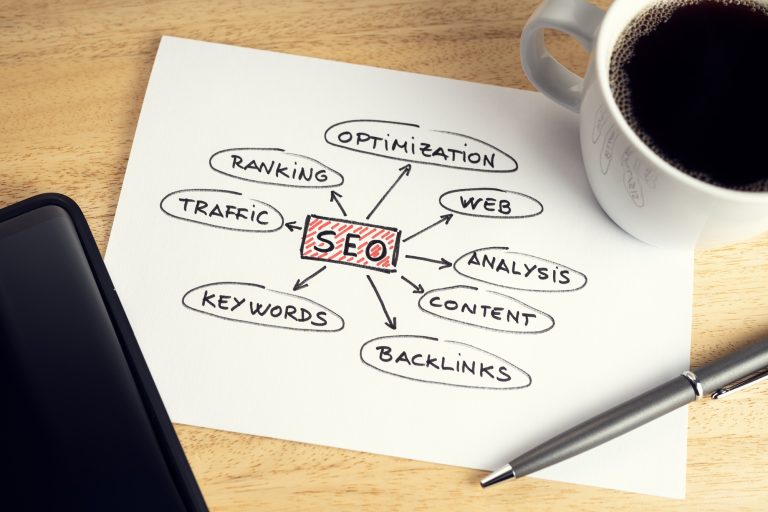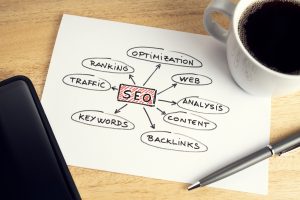SEO’s worth in 2025 remains a hot topic. Businesses now face evolving search algorithms, tougher competition, and AI-powered marketing alternatives. Data from over 1000 businesses shows surprising facts about how well SEO still works.
Small businesses often ask if search engine optimization deserves their money. The answer ties to multiple elements. Companies report excellent returns when their SEO strategies line up with their goals and market. Those who managed to keep steady SEO work saw better results as time passed. Some achieved their best outcomes between 6-12 months. The results change based on market competition, business type, and how well teams execute their plans.
This detailed analysis looks at SEO’s value in today’s digital world. Case studies and performance numbers show how businesses utilize SEO to accelerate growth. You’ll learn about realistic timelines and smart ways to maximize your investment. The purpose? To help you decide if SEO belongs in your marketing plan.
What SEO Really Means in 2025
Search engine optimization has changed dramatically over the last several years. Gone are the days when placing keywords throughout content would help you rank higher. SEO in 2025 has become a sophisticated field that brings together technical expertise, user psychology, and artificial intelligence.
Why SEO is more than just keywords
SEO in 2025 goes beyond matching keywords—it’s about understanding why people search. Google groups search intent into four main categories:
- Informational: Users seeking knowledge (e.g., “How does SEO work?”)
- Navigational: Users looking for a specific website (e.g., “Lounge Lizard SEO services”)
- Transactional: Users ready to make a purchase (e.g., “best SEO agency near me”)
- Commercial Investigation: Users comparing options (e.g., “SEO vs. PPC effectiveness”)
Businesses need to line up their content with the user’s experience, from awareness to decision-making. This means improving content structure for better readability and using schema markup that matches conversational queries.
“The brands that succeed in SEO will be those that move beyond traditional keyword strategies and focus on meeting user intent at every stage of the search journey,” notes industry experts. This means creating detailed topic clusters with clear hierarchies that help search engines understand content relationships.
How search behavior has evolved
Search behavior looks completely different now. It’s more fragmented, diverse, and competitive. Google still leads with a 90.15% market share, but these numbers don’t tell the whole story about how search spans multiple platforms and experiences.
The digital world now has dedicated AI search platforms like Perplexity and ChatGPT search that have gained much traction. Recent data shows 71.5% of people use AI tools for at least some searches. ChatGPT’s referral traffic is up 44% while Perplexity’s has grown 71%.
Social media platforms have built their own search features with unique ranking factors. Reddit, TikTok, and Instagram are becoming popular search destinations, especially for product discovery and real user opinions.
Voice assistants have altered the map of information search. Voice queries tend to be longer and more conversational, so content needs to sound like natural speech. Businesses must now optimize for multiple platforms with different content needs.
Zero-click searches have become more common and now make up 60% of Google queries. Users find answers right in the search results without visiting websites, which changes how businesses measure SEO success.
The role of AI in modern SEO
AI powers today’s most advanced search algorithms. Google’s RankBrain and BERT use machine learning and natural language processing to learn about search intent and show more relevant results.
Google’s Search Generative Experience (SGE) marks a big change in how search results appear. AI-generated summaries now show up at the top of search results, forcing traditional keyword-based SEO strategies to adapt. Studies show that URLs in AI Overviews saw 8.9% less traffic compared to normal search engine result page links.
AI makes search feel more human. Google’s AI Overviews and similar technologies boost search usage by over 10% for queries that show AI Overviews. Users clearly value these AI-enhanced experiences.
Businesses need to optimize content not just for regular search results but also for AI-generated answers. This means focusing on:
- Topic authority rather than just keywords
- Creating well-laid-out, in-depth content that answers queries directly
- Using schema markup to help AI understand content better
- Demonstrating E-E-A-T (Experience, Expertise, Authoritativeness, and Trustworthiness)
We have a long way to go, but we can build on this progress through 2025. The best SEO strategies will balance technical optimization with authentic, human-crafted content that AI will recognize and trust. Tools and techniques have evolved, but the core goal stays the same: creating valuable content that truly serves user needs.
What the Data Says: Insights from 1000+ Businesses
Data from over 1000 companies gives us clear insights into SEO’s value in today’s digital world. The numbers don’t just tell us if SEO works; they also show exactly what returns businesses can expect and how long they’ll need to wait.
Top industries seeing ROI from SEO
Industry-specific data shows big differences in returns when we assess is SEO worth the investment. Based on a three-year average from Q1 2021 through Q4 2024, some sectors perform better than others:
Real estate guides the way with an extraordinary 1,389% ROI. Medical devices follow close behind at 1,183%. Financial services reach 1,031% ROI, and PCB design and manufacturing companies achieve 1,101% return.
B2B SaaS companies get 702% ROI, legal services reach 526%, and eCommerce businesses see 317%. These returns substantially outperform other marketing channels.
Competition levels, customer behavior, profit margins, and search trends shape these differences. Businesses with high-value clients (typically worth $10,000+) make perfect candidates for intellectual influence-style SEO campaigns.
Average time to see results
The data offers clear measures for businesses asking if is SEO worth the money. Most companies see original improvements in 3-6 months. Search rankings and traffic start to change during this time.
A positive ROI usually takes 6-12 months of steady work. Here’s how it breaks down:
- 1-3 months: Rankings improve for targeted keywords, and traffic starts to grow
- 3-6 months: Rankings and traffic show bigger gains, especially with quality content
- 6+ months: Traffic and leads create a steady growth pattern
SEO campaigns often peak in the second or third year. This explains why typical top-10 ranking pages are two years old, while #1 positions are nearly three years old.
Several elements affect this timeline:
- Website age and authority (2+ year old sites rank faster)
- Your industry’s competition level
- How well SEO gets implemented
- Technical site structure and content quality
Common SEO goals and outcomes
Conversion metrics prove SEO works for small businesses, asking if SEO is worth it. SEO leads convert at 14.6% versus 1.7% for outbound leads. Search traffic brings visitors who are ready to buy and participate.
Businesses make $7.48 for every dollar spent on SEO, with an average return on advertising spend (ROAS) of 7.48:1. This makes SEO one of the most budget-friendly digital marketing strategies for sustainable growth.
SEO delivers the best ROI among all marketing channels, according to 49% of marketers. It beats paid search (19%), social media (18%), and email (14%). B2B companies get twice the revenue from SEO compared to other channels. About 61% of B2B marketers say SEO and organic traffic create more leads than any other marketing effort.
Successful SEO campaigns share key traits: steady content creation, technical optimization, and patience through early growth. Progress often resets when businesses quit too soon. This shows why staying committed matters.
Ready to tap into your website’s SEO potential? Get a Free SEO Audit to find growth opportunities and see how your business measures up to industry standards.
Why SEO Is Still Worth the Investment
The numbers and algorithms tell one story, but is SEO worth it in real terms for today’s businesses? The data makes a strong case that search engine optimization still brings real value, even in our evolving digital world.
1. Builds long-term brand visibility
Paid ads stop working when you stop paying. SEO creates lasting visibility that grows stronger over time. Your website keeps attracting visitors once it ranks well for key terms, with minimal upkeep needed.
This lasting approach builds trust in ways ads never could. Yes, it is true that people trust organic search results far more than ads or social posts—72% more, to be exact. Your brand’s reputation gets stronger as your site gains authority through steady optimization work.
The lasting nature of SEO makes it valuable. The work you put in now keeps paying off down the road. Many businesses see their best results in year two or three of their campaigns.
2. Attracts high-intent traffic
The quality of traffic stands out as one of the best reasons SEO is worth the investment. SEO connects you with people already looking for what you offer, unlike outbound marketing that interrupts potential customers.
This makes a huge difference. High-intent keywords show when someone’s ready to take action—whether that’s buying products, booking services, or asking for details. These searchers have usually:
- Done their homework
- Looked at options
- Made up their minds
- Picked their top choices
The numbers back this up. SEO leads convert at 14.6% compared to just 1.7% for outbound leads. That’s 8.5 times better simply because you meet customers when they’re ready to act.
3. Supports every stage of the buyer’s trip
The stats show that 95% of B2B buying happens online. Your SEO strategy needs to help customers at each step of their decision-making process.
You can create content that answers specific questions buyers have along the way. Early-stage content might tackle basic questions like “what is” or “how to,” while later content helps compare options with terms like “which is better”.
Your brand needs to show up at key moments when you line up SEO with the buyer’s path. Your competitors will step in if you’re not there. Being visible throughout the customer’s trip helps build loyalty, gets referrals, and gives you an edge.
4. Reduces dependency on paid ads
When you ask is SEO worth the money versus paid ads, the numbers tell a clear story. SEO marketing gives at least a 500% return (5:1), usually breaking even around 6 months. Some fields do even better—real estate sees 1,389% ROI over three years.
Paid ads need constant funding to work. SEO costs less over time since it brings in organic traffic without paying for each visitor.
Small marketing budgets go further with SEO. Businesses make $7.48 for every dollar spent on SEO across industries. This makes it one of the most cost-effective digital strategies you can use.
These benefits show that SEO is worth it for small businesses who want steady growth without endless ad costs. The key is staying committed and seeing it as a long-term investment rather than a quick fix.
Real-World Results: SEO Case Studies That Prove It Works
Wondering if is SEO worth it? Case studies show clear proof of how SEO affects businesses of all types. Here are three powerful examples that show huge returns from strategic SEO investments.
Case Study: Local law firm increases leads by 380%
A successful trial attorney’s website pulled in just 60-150 monthly views with almost no leads, even with regular blog posts and great reviews. The results came exactly as predicted after teaming up with Trial Guides Digital Marketing for SEO-optimized content.
Traffic doubled within six months compared to the previous year. The law firm’s organic traffic grew by an amazing 2,694.4% by December 2024, with organic keywords up by 69.1%. This huge boost in visibility brought direct business results:
- January 2025 brought 12 high-value case leads
- The firm landed ten new high-value cases in one month
- Case values add up to over $20 million, even in a state known for low settlements
Another law firm’s link-building work boosted new organic users by 681% in just one year. This small practice grew so much they needed several new attorneys to handle all their cases.
Case Study: Ecommerce brand boosts revenue by 28%
Quality Woven Labels, which makes custom clothing labels, saw their numbers drop after moving their site – sessions fell 33% and users dropped 40% over three months. Technical SEO fixes turned things around fast:
- Organic sessions jumped 18.6%
- Organic users grew 18.8%
- Organic revenue soared 118%
These results inspired another retailer to focus on product categories and keyword optimization. They added optimized content to category pages and built their brand through off-page work. This helped them reach first-page rankings in various sub-categories and pull in more organic traffic.
SEO keeps delivering great returns for e-commerce businesses. One online store saw 40% more revenue in June compared to last year by optimizing meta tags, updating product pages, and fixing technical issues.
Case Study: Healthcare provider doubles revenue
First4Health, known for quality personal care, struggled with its website. They had poor metadata, old layouts, confusing navigation, and thin content.
Their numbers shot up after fixing technical issues, optimizing pages, creating targeted content, and building quality backlinks:
- Organic traffic grew 38%
- Total users increased 37%
- Revenue jumped 156%
- Transactions rose 72%
Merrimack Valley Psychological Associates, a counseling provider, doubled their revenue with targeted SEO work. A local clinic grew from zero to 1,200 monthly patients through focused local SEO.
Ready to find hidden growth opportunities? Get a Free SEO Audit to see how smart optimization could transform your online results.
Addressing the Common Objections to SEO
Businesses often raise several objections about whether is SEO worth it. Let’s get into these concerns with real data from thousands of businesses.
Is SEO too expensive?
Business owners hesitate about SEO costs, but the data shows clear value. The average monthly SEO investment ranges from $1000-$2500, and most providers (68.8%) charge less than $2001 per month. Small businesses should invest at least $500 monthly to see meaningful results.
SEO isn’t cheap, but neither is wasted marketing spend. Companies that spend more than $500 monthly report better satisfaction rates. This matches the “you get what you pay for” reality. Discount SEO services (around $150/month) can’t deliver quality since a single valuable backlink costs about $250.
Does SEO take too long to work?
This stands as the most common objection to SEO. SEO takes 3-6 months to show results, and you’ll see bigger changes during this period. SEO isn’t a quick fix but a method that delivers lasting results.
Your timeline depends on your website’s age, competition levels, and how well you implement SEO. Most experts say 6-12 months is realistic to achieve positive ROI. The data proves this point—a typical top-ranking page is about two years old. Patience brings big rewards.
Is SEO dead because of AI?
AI hasn’t killed search—the data proves otherwise. One industry expert puts it well: “Search isn’t dying – it’s fracturing”. The “SEO is dead” panic misses a key point: search is a behavior, not just a platform.
AI changes how people find information, but doesn’t eliminate the need for visibility. The core principles that drive SEO success—authority, originality, and trust—remain crucial for AI systems. Smart businesses now focus on creating exceptional experiences that meet user needs across all search environments.
Is SEO too competitive for small businesses?
Small businesses asking if is SEO worth the investment will find encouraging data. More than 50% of small businesses don’t have an SEO strategy. This creates a great chance for those who do. SEO offers an economical alternative to expensive paid advertising.
Local businesses win big here. Almost half of all Google searches have local intent, and 72% of consumers visit a store within five miles after a local search. Google’s data shows that 28% of people who searched for something nearby made a purchase.
How to Make SEO Worth the Money for Your Business
A well-laid-out methodology sets successful SEO campaigns apart from wasted spending. These four components will give you a soaring “yes” to the question is SEO worth it for your business.
Set clear goals and KPIs
Your SEO success depends on setting specific, measurable objectives that line up with your business goals. You can’t track progress or determine if your efforts pay off without clear targets. Your SEO goals should be SMART: specific, measurable, actionable, relevant, and time-bound.
Your metrics should connect directly to business outcomes instead of vanity metrics:
- Organic conversions and revenue
- Search visibility across target keywords
- Click-through rates from search results
- Customer acquisition costs through SEO
These KPIs help you find what works and what doesn’t, so you can adjust your strategies.
Focus on high-impact content
Quality content remains the lifeblood of effective SEO. You should prioritize creating material that addresses user intent and shows experience and expertise. Content that solves problems or gives an explanation naturally attracts backlinks and ranks better over time.
Your keyword research should identify terms your target audience searches for. These terms should flow naturally into titles, headers, and content. Content serving genuine user needs will outperform keyword-stuffed alternatives.
Invest in technical SEO and UX
Technical SEO and user experience boost website performance together. Search engines give higher rankings to sites that deliver exceptional user experiences.
Site speed, mobile-friendliness, structured data, and secure connections make up key technical factors. A well-laid-out, fast-loading website gives visitors an uninterrupted experience. This reduces bounce rates and improves dwell time.
Work with trusted SEO experts
Choosing the right partner makes all the difference when outsourcing SEO. Good SEO isn’t cheap, but cheap SEO rarely works. A reputable SEO expert gives honest assessments about achievable outcomes rather than unrealistic promises.
You need professionals who give a full picture, present clear strategies, and deliver regular progress reports. The right expert will understand your business goals and shape SEO efforts around them.
Ready to see if SEO could transform your business? Get a Free SEO Audit to find untapped opportunities and see how strategic optimization could boost your bottom line.
The Data-Driven Verdict: SEO Remains a Winning Strategy
Our analysis of over 1000 businesses proves that SEO still delivers great returns despite changes in the search landscape. Companies report remarkable ROI numbers across industries. Real estate shows an amazing 1,389% return while eCommerce achieves 317%. These numbers beat other marketing channels by a lot. Results take time, but data shows that businesses with steady SEO efforts gain more benefits as time passes. Most see their best results in year two or three.
SEO differs from paid ads, which stop working when you stop paying. It builds lasting visibility and trust with your audience. Better yet, SEO brings visitors ready to buy. This explains why organic leads convert at 14.6% while outbound leads only reach 1.7%. These quality traffic differences make SEO worth the investment for most companies.
SEO has grown beyond just keywords. It now needs expertise in user psychology, technical optimization, and AI-readiness. The basic principles stay the same – create valuable content that helps users while building trust and authority. Companies that match their SEO plans with business goals achieve breakthrough results.
Business owners who want to know if their website needs optimization should get a Free SEO Audit. This audit reveals hidden growth opportunities and helps create analytical insights that match your goals.
Our detailed analysis shows SEO remains a solid investment for 2025. Success comes to businesses that treat it as a long-term commitment rather than a quick fix. Companies that understand this fact will outperform their rivals and build lasting traffic sources that propel development for years ahead.
FAQs
Is SEO still effective in 2025?
Yes, SEO remains effective in 2025, but it has evolved. Data from over 1000 businesses shows that SEO continues to drive quality traffic and conversions. However, success now requires adapting to new technologies, focusing on user experience, and creating valuable content that satisfies user intent across all search environments.
How long does it take to see results from SEO?
Most businesses start seeing initial improvements in 3-6 months, with more significant changes in search rankings and traffic occurring during this period. However, achieving positive ROI typically requires 6-12 months of consistent effort. Peak results from SEO campaigns often occur in the second or third year, indicating that SEO’s value compounds over time.
Is SEO worth the investment for small businesses?
Yes, SEO can be particularly valuable for small businesses. It offers a cost-effective alternative to increasingly expensive paid advertising. Local businesses especially benefit, as nearly half of all Google searches have local intent. Additionally, SEO leads convert at 14.6% compared to just 1.7% for outbound leads, representing a significantly higher close rate.
How has AI impacted SEO?
AI has not made SEO obsolete; instead, it has changed how people find information. The core principles of SEO success—authority, originality, and trust—remain essential for visibility in AI systems. Businesses are now focusing on creating exceptional experiences that satisfy user intent across all search environments, including AI-powered platforms.
What are the key components of a successful SEO strategy in 2025?
A successful SEO strategy in 2025 involves setting clear goals and KPIs, focusing on high-impact content that addresses user intent, investing in technical SEO and user experience, and potentially working with trusted SEO experts. It’s crucial to view SEO as a long-term investment rather than a quick-win tactic and to adapt strategies as search algorithms and user behaviors evolve.





